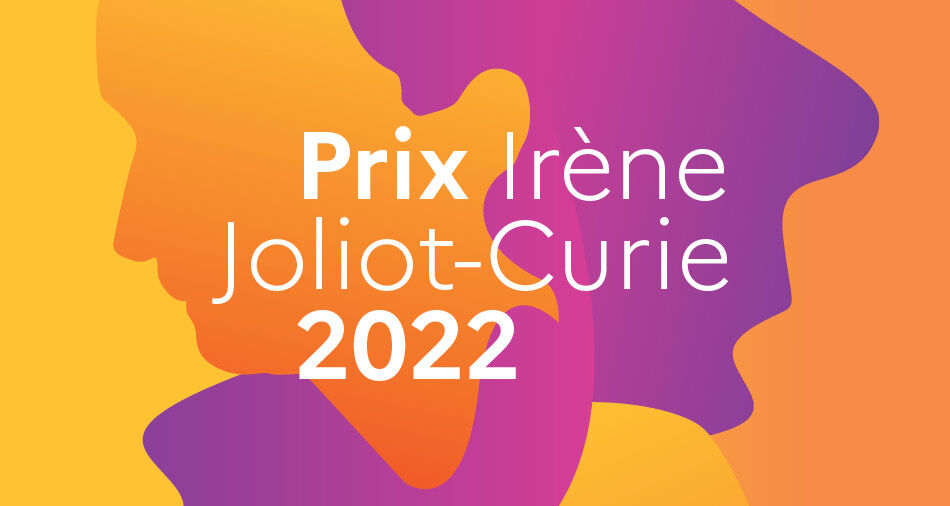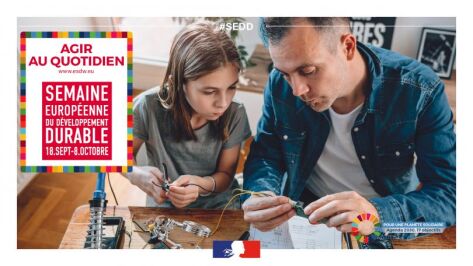 Actualidades
Actualidades 
Irène Joliot-Curie Prize 2022: Nina Hadis Amini, researcher of Iranian origin, Young Female Scientist laureate
Since 2011, the Irène Joliot-Curie Prize supports and promotes the place of women in sciences and research by recompensing exemplary careers. This year, the jury has awarded four laureates with prizes, including Nina Hadis Amini, international researcher of Iranian nationality who completed part of her studies abroad and passed a doctorate in France. She won the Young Female Scientist laureate.
Awarded by the ministry of higher education and research with the support of the academy of sciences and the academy of technologies supervising the operation of the jury, the Irène Joliot-Curie Prize recompenses women researchers in four categories: Female scientist of the year, Special Prize of Commitment, Young Female Scientist, and Women, Research and Companies. These various award representative careers in public and private research “to highlight the career of women scientists who join excellence and energy”.
Nina Hadis Amini, Young Female Scientist laureate
“She embodies the diversity needed in the French scientific community: of Iranian nationality and trained in France then in English-speaking countries, she offers a good role model to present to young women and men.” It’s with such beautiful praises that the academy of Sciences presents Nina Hadis Amini, laureate of the Prix de la Jeune femme scientifique (Young Female Scientist).
Hadis Amini, of Iranian origin, holds a doctorate passed at the Ecole des Mines and is now in charge of research at the CNRS (Laboratory of signals and systems - University of Paris-Saclay, CNRS, CentraleSupélec). She was also a postdoctoral researcher at the University of Stanford and Australian National University. She then obtained a job at the CNRS in 2014, the young mathematician specialises in automatics applied to controls of quantic systems. According to the Ministry, in her research, “she used mathematical tools of physics and automatics to contribute to the elaboration of systems able to solve problems currently impossible for common computers which revolutionize the methods of other disciplines such as artificial intelligence or medicine”.
Bérengère Dubrulle, Female Scientist of the Year
Bérengère Dubrulle is Head of Research (CEA Saclay). According to the Academy of Science, she is a world-famous specialist thanks to “her studies of turbulences, an extraordinary complex physics phenomenon that has been resisting the efforts of physicists and mathematicians for centuries”.
Since the start of her career, she has been working in “pluridisciplinary research, in interface between mathematics, out-of-balance physics, non-linear physics, fluids mechanics, astrophysics, geophysics and climate”. Her work shows a “surprising capacity to identify essential phenomena”. For this reason, Dubrulle received many prizes and “strives to share scientific progress with the broader audience”.
Marjorie Cavarroc-Weimer, Woman in Business and Technology
An engineer in research and technology, expert in materials and processes in the Safran group (Safran Tech), Marjorie Cavarroc-Weimer studied at the university, then in school of engineering and defended her doctorate thesis in the field of plasma physics.
As the ministry points out, she is also a member of the team of experts of the L’Oréal-UNESCO Foundation for Women in Science, as well as of the Elles bougent association and the C Génial Foundation, associations involved in working with young people, and in particular young women, to promote the work of women scientists and the research professions.
Céline Bellard, Special Prize of Commitment
Céline Bellard, in charge of research at the CNRS (Systematic Ecology and Evolution Laboratory at the University of Paris-Saclay), is “an exceptional and productive young researcher”, in the words of the Academy.
Her research focuses on “the effect of global changes and in particular biological invasions and climate change on biodiversity”. Her research, in relation with climate change, dig deep to the “heart of current environmental concerns”. The Academy of Sciences also points out that she has been able to “put a splendid academic achievement at the service of the community by engaging in various international expertise activities”.




Commentaires
Vous devez être connecté pour laisser un commentaire. Connectez-vous.